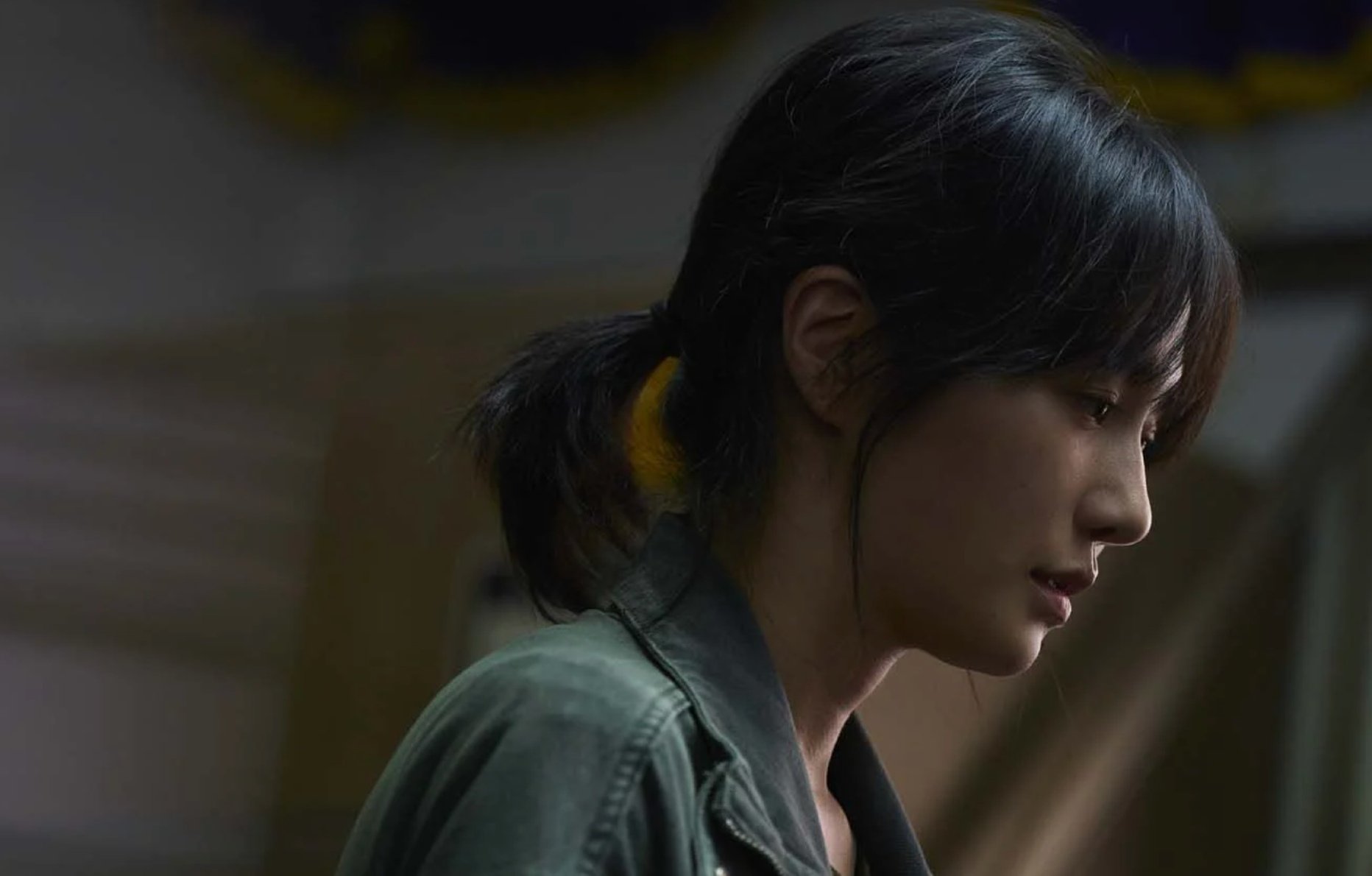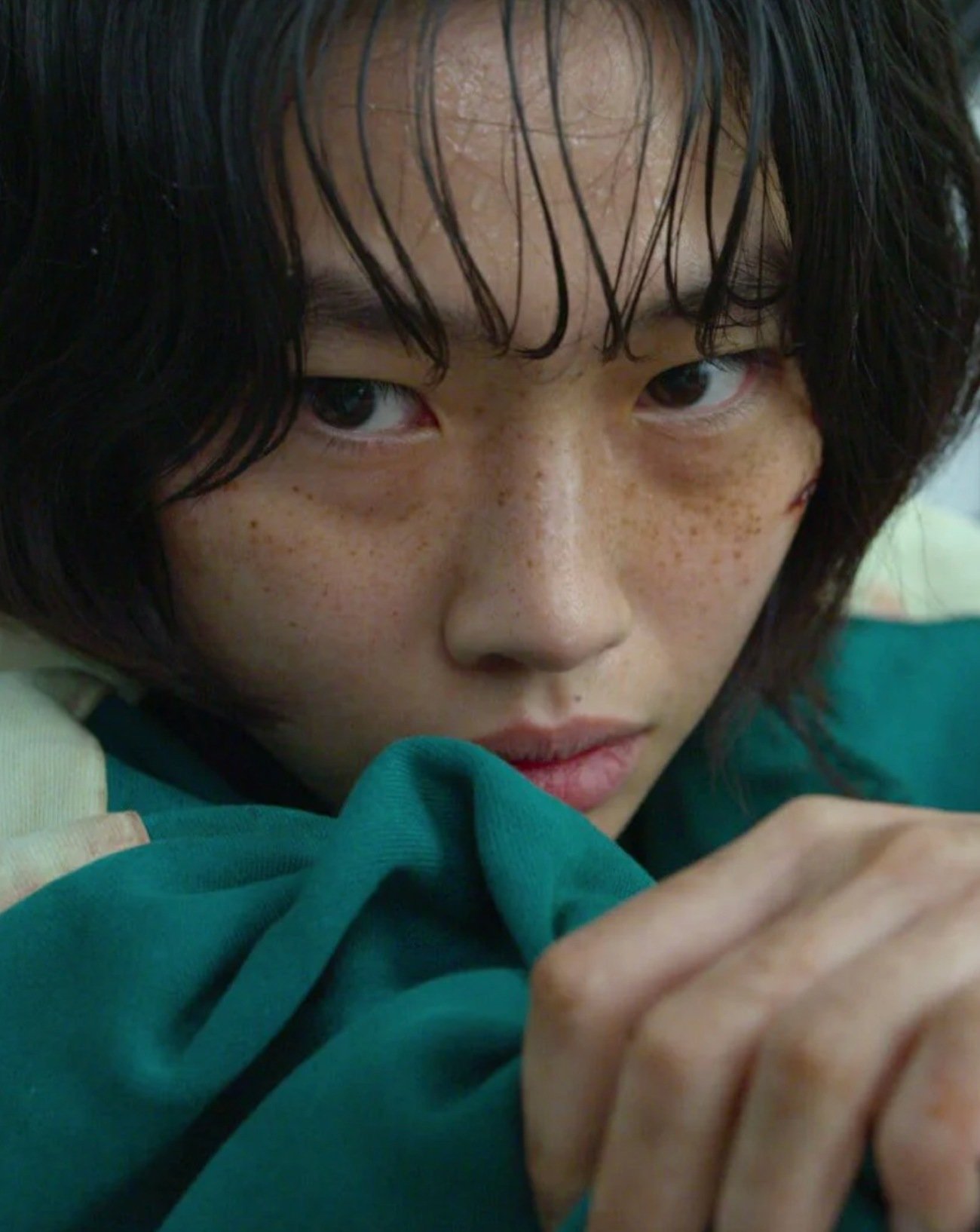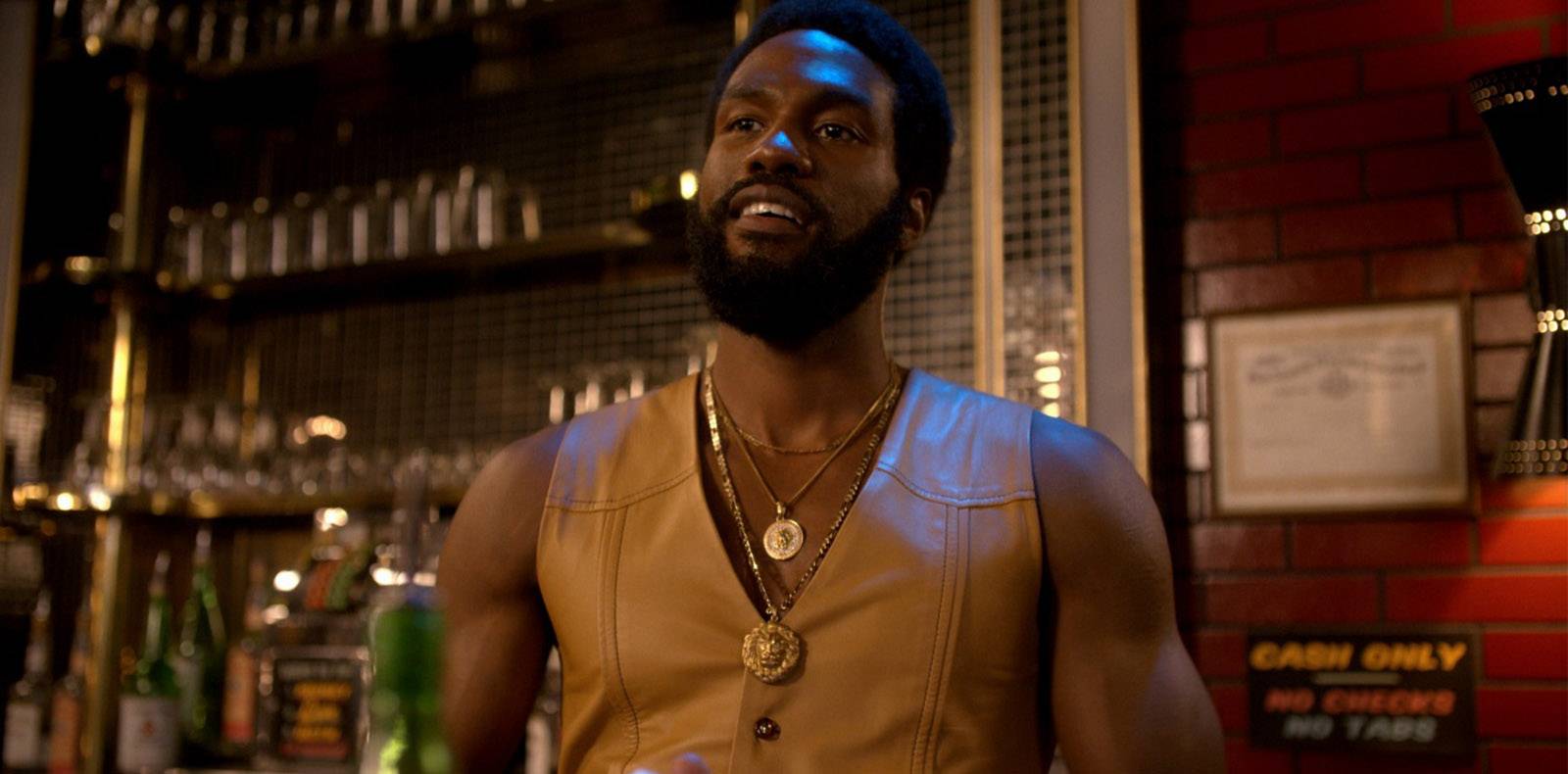
2

2
Squid Game: Throwback to the phenomenal success of the South Korean Netflix series
Since its launch on September 17, 2021, the effective and cruel series Squid Game has been breaking audience records on Netflix, establishing itself as a real phenomenon. But the success of this South Korean creation is above all, more than due to its inventiveness or its bluffing actors, to its skilful revival of works that have already proven their worth. Explanations in the form of an equation.
Published on 2 July 2025. Updated on 3 November 2025.
Squid Game: 40% Hunger Games and Battle Royale
Squid Game tells the story of penniless heroes who agree to play fatal games to win millions of dollars. This gory version of the game “One, two, three, sun” which turns out to be as scary as it is addictive seems on paper to be the most original. But its aesthetic mix of playful and cruel elements is very reminiscent of the Hunger Games saga, starring Jennifer Lawrence in the title role of Katniss Everdeen, as well as the cult Japanese film Battle Royale. In The Hunger Games, we are immersed in a dystopian world organized into castes (the “districts”) where a game show aims to control the people through fear. Released in 2000, Battle Royale plunges into a country in the Far East of the future reminiscent of Japan. In the midst of a rebellion of the young people, a survival program in the form of a fierce battle is voted by the adults. In Squid Game, as in these two works that fascinated teenagers and their parents alike, the bloody fights bring to light the darkest sides of humanity.
20% manga and video games for the survival game scenario
Squid Game
evokes a lot, by its exaltation of violence as well as by its importance given to rules and trials, video games and manga , a whole section of which is part of a survival game tradition. Some fans of the graphic novel Children’s Games, created by Muneyuki Kaneshiro and Akeji Fujimura, have raised the similarities between the two works. In Children’s Games, we find a figurine called Daruma close to the very disturbing giant doll from Squid Game. The South Korean series, which has been at the top of the Netflix charts since its launch, also mentions another surprise success of the platform, Alice in Borderland (2020). This adaptation of a famous manga features a young man who is passionate about video games and his friends trying to extricate themselves – for their survival – from dangerous situations in a dark Tokyo.
20% Parasite for its social aspect
In addition to being South Korean, Squid Game follows in the footsteps of the 2019 Palme d’OrParasite by its social scope. Even if the Netflix series imagined by Hwang Dong-hyeok does not have the virtuosity and subtlety of Bong Joon-ho’s masterpiece, in both cases it is a question of their directors evoking the inequalities of their country, but also the financial injustices that persist in the rest of the world. In Bong Joon-ho’s feature film, an unemployed family puts itself at the service of a wealthy family. In Squid Game, it is precariousness and debt that push the protagonists to embark on deadly games: the characters are forced to participate in what could lead to their downfall so as not to wither away from anything else. A chilling and metaphysical irony that explains the profound impact on viewers of the series, which is on its way to becoming the most watched non-English program on Netflix.
10% Kill Bill for its pop side
With its pop side in its staging of violence, Squid Game is reminiscent of many moments of Quentin Tarantino
– who happens to be a big fan of Battle Royale – and especially the insane Kill Bill (2003), very influenced by Asian culture. In both cases, we do not come out of these bloodbaths unscathed, designed as paintings with elaborate colors and an explosive soundtrack.
10% Black Mirror for the dystopian scenario
A scathing satire of the shortcomings of a contemporary society ready to do anything for money, Squid Game makes viewers think about their own difficulties and behaviors. What would we do in the place of the protagonists trapped in these demonic games? Would we give up the game? These questions were already the strength of Black Mirror (2011), an anthology series which, through the establishment of a dystopia, alerted over the course of its episodes and different stories to the dangers of technology and other demons forged by men.
Squid Game (2021) by Hwang Dong-hyuk, available on Netflix.














